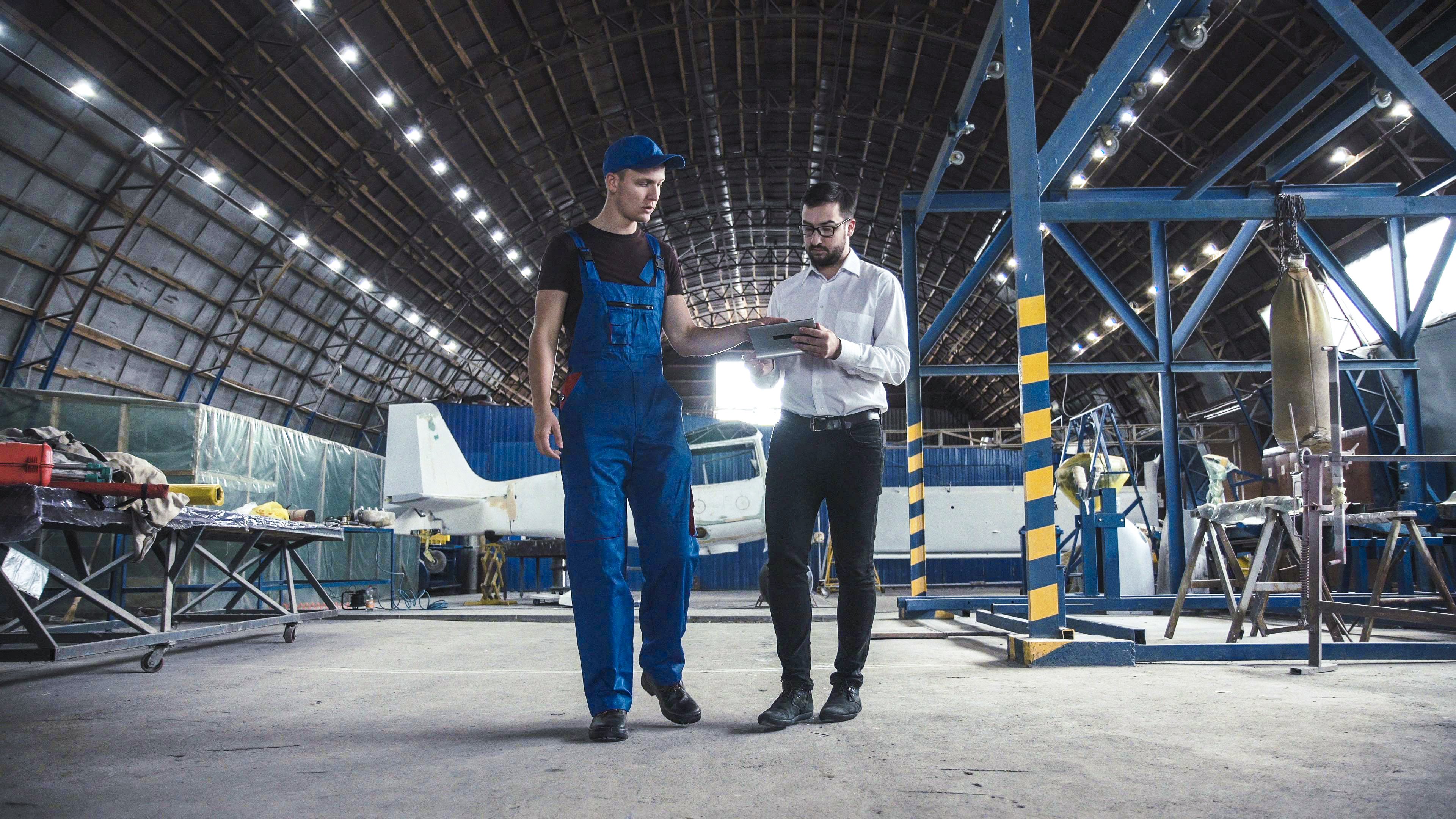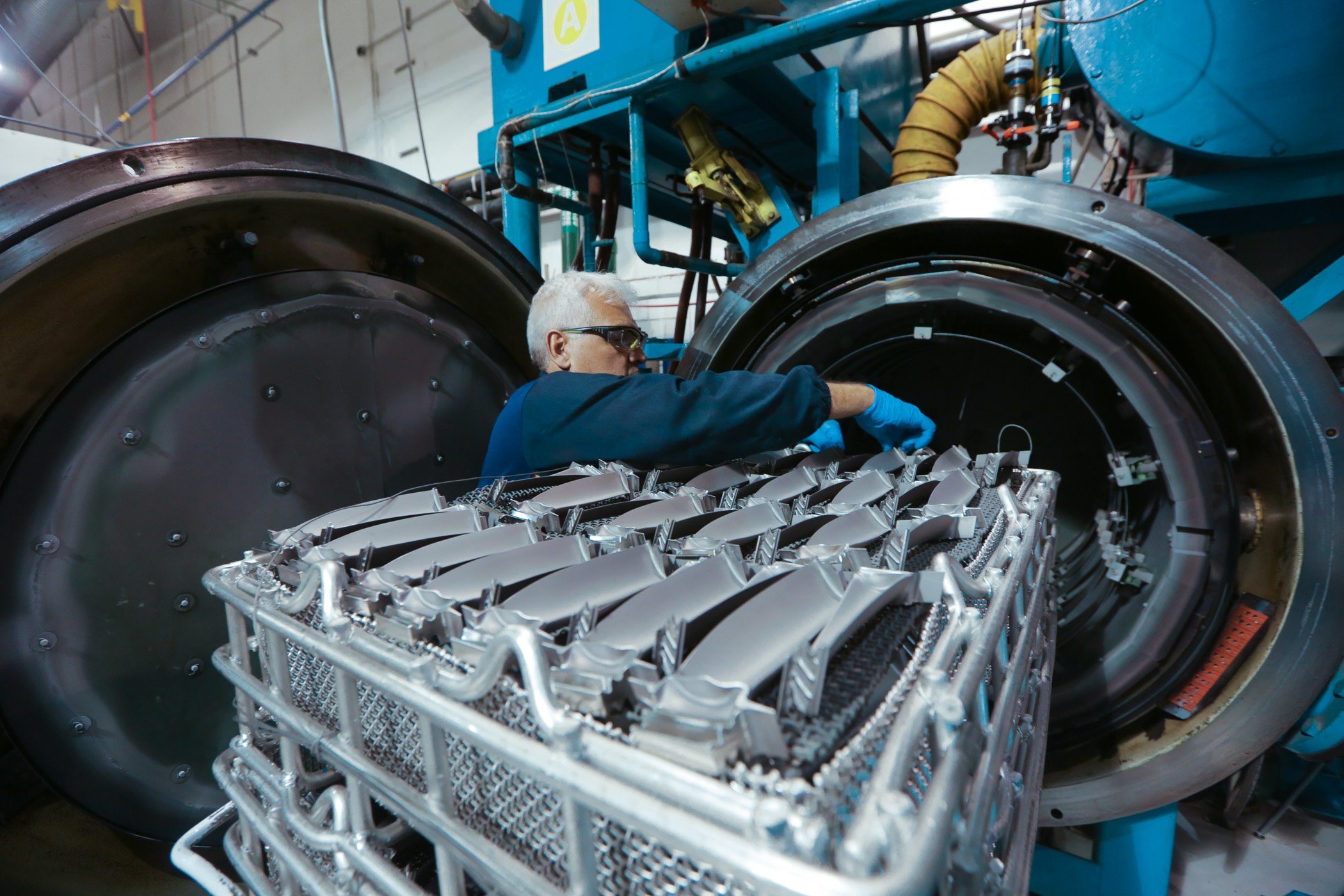In a relatively short time, Mexico has emerged as a strong presence in the global aerospace industry. Regions across Mexico have seen dramatic investment at every level of aerospace manufacturing. Mexican plants provide essential components that power and shape commercial aircraft, helicopters, and unmanned aerial devices. This growth has been powered by investments in workforce and research centers and strengthened by cross-border cooperation.
Despite the sector's strength, there remains significant room for growth in the Mexico aerospace manufacturing industry. Below, we provide an overview of Mexico's aerospace industry so you can determine how your Tier 1, Tier 2, or Tier 3 company can best position itself to join one of Mexico's aerospace clusters.
How big is Mexico's aerospace industry?
In recent years, Mexico's aerospace sector has shown a remarkable growth trajectory, solidifying its position on the global stage. In 2019, the sector reached a significant milestone with nearly $10 billion USD in exports, reflecting the robust ecosystem of manufacturers, suppliers, and educational institutions fueling this industry. However, 2020 brought unforeseen challenges as the COVID-19 pandemic swept across the globe, causing a substantial downturn in the global aerospace sector. The pandemic's dramatic impact on aviation led to reduced demand for aerospace components and aircraft, mirroring the slowdown in global travel and trade.
Despite these adversities, Mexico's aerospace manufacturing sector exhibited a swift and robust rebound. Unlike other regions, Mexico's unique blend of skilled labor, geographic advantage, and government support provided a cushion against the pandemic's adverse effects. As of 2023, the Mexican aerospace market has bounced back resiliently to the tune of $9.7 billion USD, as reported by Mordor Intelligence. This rebound is a testament to the inherent strengths and resilience embedded within Mexico's aerospace ecosystem.
Looking ahead, the future appears bright for Mexico's aerospace industry. Mordor Intelligence projects a bullish outlook, forecasting that the industry will nearly double to reach $19 billion USD by 2028. This growth is not serendipitous but is backed by strategic initiatives from the Mexican government aimed at propelling the nation further up the global aerospace supplier ladder. The government's vision is clear: transition Mexico from its current position as the 14th largest aerospace supplier in the world to the 10th largest by 2028.
To realize this ambitious goal, the Mexican government has been actively encouraging growth within the sector. A concoction of favorable policies, investment in research and development, and fostering international partnerships are part of the broader strategy to accelerate the industry's growth. Moreover, initiatives to bolster the skills of the workforce through specialized training programs and higher education collaborations are underway, ensuring that the industry has the human capital necessary to drive innovation and meet the growing global demand.
Aerospace companies in Mexico
The Mexican Federation of Aerospace Industry (FEMIA), a nonprofit organization representing the aerospace sector in Mexico, highlights the remarkable growth of the industry from 100 manufacturers in 2004 to nearly 370 by 2020. A pivotal moment in this growth trajectory was the establishment of the Universidad Aeronáutica en Querétaro (UNAQ) in 2005, aimed at nurturing a skilled workforce for the sector. This initiative attracted Canadian OEM Bombardier to Queretaro, setting a precedent that encouraged other OEMs and supply chain partners to consider Mexico as a viable location for aerospace manufacturing.
However, the cornerstone of Mexico's aerospace industry’s ascent is its young, eager, and skilled workforce. Their readiness to adapt and learn has made Mexico an attractive destination for foreign investors looking to tap into the country's cost-effective labor market.
Today, a wide array of aerospace components, including engines, fuselages, avionics, landing gear, and airframes, are manufactured in Mexico. Global aerospace giants and their suppliers, such as those of Rolls Royce, GE, and Honeywell, have set up manufacturing operations in Mexico, particularly for turbine systems, among other components. Safran, Airbus, GKN Aerospace, and Collins Aerospace are among the other notable players contributing to the thriving aerospace ecosystem in Mexico.
Many of these manufacturers are actively working to broaden their supply chain within Mexico to bolster their middle- and long-term production programs, as noted by the U.S. International Trade Administration (ITA). This expansion presents an invaluable opportunity for Tier 2 and 3 suppliers contemplating a move to Mexico. ITA particularly identifies promising investment avenues in carbon fiber component production, thermoforming and hydro-forming, aerospace molding, special tooling, surface treatments, and other specialized aerospace services, showcasing the wide spectrum of opportunities awaiting potential investors in the Mexican aerospace sector.
The blend of a conducive labor market, strategic educational initiatives like UNAQ, and the presence of global aerospace behemoths, together with their suppliers, creates a symbiotic environment fostering continuous growth and innovation in Mexico's aerospace sector. This triad of factors, complemented by the expanding supply chain initiatives, underscores Mexico’s emerging prominence on the global aerospace manufacturing landscape.
Mexico’s aerospace clusters
Mexico's aerospace clusters are spread across various strategic locations, each with its unique strengths and focus areas:
- Querétaro: This cluster thrives on collaboration with small to medium-sized companies and startups in aerospace technology and is diversifying into defense and space sectors.
- Chihuahua: Housing 25% of Mexico's aerospace plants, it's geared towards supporting small- and medium-sized enterprises.
- Baja California: With 59 international companies, it focuses on defense projects for the US, benefiting from a manufacturing shift from China to Mexico.
Nuevo León: Aiming for regional integration, it sees potential in supply chain consolidation post-pandemic. - Sonora: Home to 69 companies employing over 20,000 people, it leverages its proximity to Arizona, educational infrastructure, and skilled workforce for growth.
Moreover, the recent expansion of Consolidated Precision Products (CPP) into Mazatlán highlights the city as an emerging aerospace hub, offering a stable workforce for companies looking to invest in Mexico.
Mexico’s aerospace clusters invest in their people
Many of these clusters are marked by workforce investments that prepare engineers and technicians with skillsets aligned to local aerospace manufacturers’ needs. These include a range of technical institutes, like UNAQ, as well as vocational training centers. Hermosillo, for example, is home to the Sonora Institute for Aerospace and Advanced Manufacturing (SIAAM), which equips the local workforce with specialized skills.
Many higher education institutions seek opportunities to partner with local manufacturers in order to better prepare their graduates for the workforce. For example, Consolidated Precision Products (CPP) has a formal agreement with the Technological University of Guaymas (UTG) in Sonora. UTG tailors study plans to provide students with training in cold welding – an in-demand casting skill used in virtually every aircraft component.
Another option for manufacturers is to operate in a manufacturing community that provides training space. For example, Sonora’s Roca Fuerte Manufacturing Community is home to the Advanced Technology Training Center (CEFTA), which provides space for hands-on learning in complex aerospace component manufacturing.
Mexico’s aerospace clusters are strengthening research investments
More recently, Mexico’s aerospace clusters have invested in research and development operations that can support the technology innovation powering new manufacturing solutions. These research centers include the Center of Aeronautical Technologies of Querétaro (CENTA) and the Autonomous National University of Nuevo Leon (UANL/CIIA). Mazatlán has plans to launch its own aerospace research center in the near future.
The Mexico aerospace industry continues to evolve
The aerospace industry is evolving swiftly, and Mexico's aerospace entities are well-poised to keep pace. With companies delving into lightweight carbon materials, additive manufacturing technologies, and burgeoning unmanned aircraft and aerial mobility sectors, the nation is at the forefront of innovation. The cost-effective manufacturing environment in Mexico allows many aerospace companies to reallocate funds toward next-generation innovation.
The journey into Mexico's aerospace sector is further simplified with Tetakawi’s expertise. With over 37 years of experience, Tetakawi has aided aerospace companies like BAE, Unison, Ducommun, Parker, and many others in seamlessly launching, operating, and thriving within Mexico's dynamic aerospace ecosystem. Your venture into Mexico's aerospace sector is just a consultation away. Contact Tetakawi today for tailored assistance in positioning your aerospace manufacturing operation in Mexico.
Subscribe
Sign up and stay informed with tips, updates, and best practices for manufacturing in Mexico.






